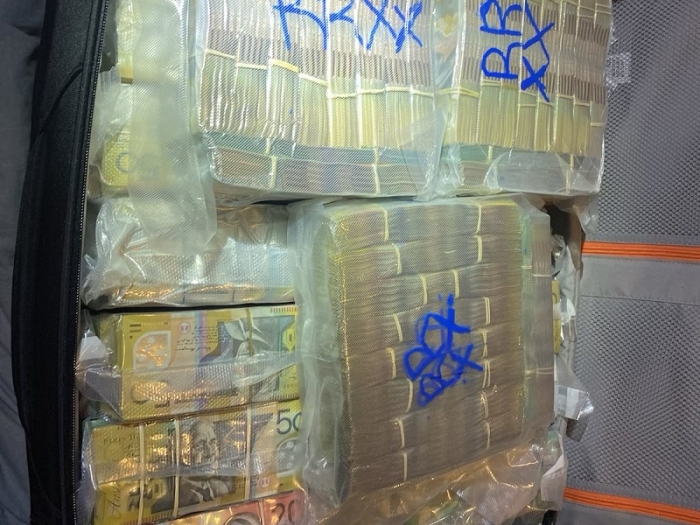Second person sentenced over $153,000 spoofing scam
Editor’s note: Image and video available via Hightail.
A Sydney man has been sentenced for his role in a criminal syndicate where members posed as Australian government employees, including the AFP, and scammed vulnerable members of the community.
The man, 28, was sentenced by Downing Centre District Court on 1 March, 2024, to 15 months' imprisonment to be immediately released upon entering a Recognisance Release Order.
The Wentworthville man plead guilty to the following charges on 18 April, 2023:
- One count of possession of property reasonably suspected of being proceeds of crime, contrary to section 400.9(1A) of the Criminal Code Act 1995 (Cth);
- One count of dealing in proceeds of crime, money or property worth $1,000 or more, contrary to section 400.7(2) of the Criminal Code Act 1995 (Cth); and
- One count of giving false or misleading information to specified persons or entities, contrary to section 136(1) of the Anti-Money Laundering and Counter-Terrorism Financing Act 2006 (Cth).
The police investigation identified the man acted as a courier for the syndicate, collecting bank cards and personal identity information – such as Medicare and ID cards – along with cash from victims as part of the scam.
The investigation began after a victim contacted the AFP in October 2021 to verify their contact with alleged officials from Services Australia and the AFP.
Subsequent AFP inquiries revealed the criminal syndicate allegedly called victims, aged between 50 and 90, and fraudulently impersonated employees from public service agencies and the AFP.
The call numbers were allegedly ‘spoofed’ to display legitimate contact numbers of government agencies, and victims were informed they were the subject of identity theft, with multiple bank accounts created in their name.
The 11 victims identified by the AFP were told they had the option to be arrested for money laundering offences or settle the matter by providing identity information, funds and bank details to the ‘government employee’ on the phone.
By choosing the latter option, victims were instructed to pay the syndicate through a variety of methods. One method included in-store gift card purchases, which allegedly meant a $30,000 profit for the syndicate.
The syndicate allegedly employed numerous money laundering techniques to obfuscate the movement and source of funds.
AFP Detective Sergeant Matthew Veraguth said the AFP investigation into the sophisticated scam dismantled a criminal network from top to bottom.
“This syndicate took advantage and abused the trust Australians have in the AFP, and we did not hesitate to prosecute those responsible,” Det-Sgt Veraguth said.
“These individuals preyed on vulnerable members of our society to fill their greedy pockets.
“To the individual that remains at large – we will be waiting for you and we are ready to act when the opportunity arises to put you before the courts to answer for your alleged crimes.
“If anyone is contacted by someone claiming to be an AFP officer, ask for their name and badge number – they must provide this to you. Hang up immediately and call the AFP Switchboard on (02) 5126 0000 to verify the information they have provided you.”
AFP-led Taskforce AVARUS combines resources from AUSTRAC, Australian Border Force and the Australian Criminal Intelligence Commission to target money laundering syndicates that enable transnational serious and organised crime groups.
If you have suffered any financial loss as the result of fraud, report it immediately via the Scamwatch website.





